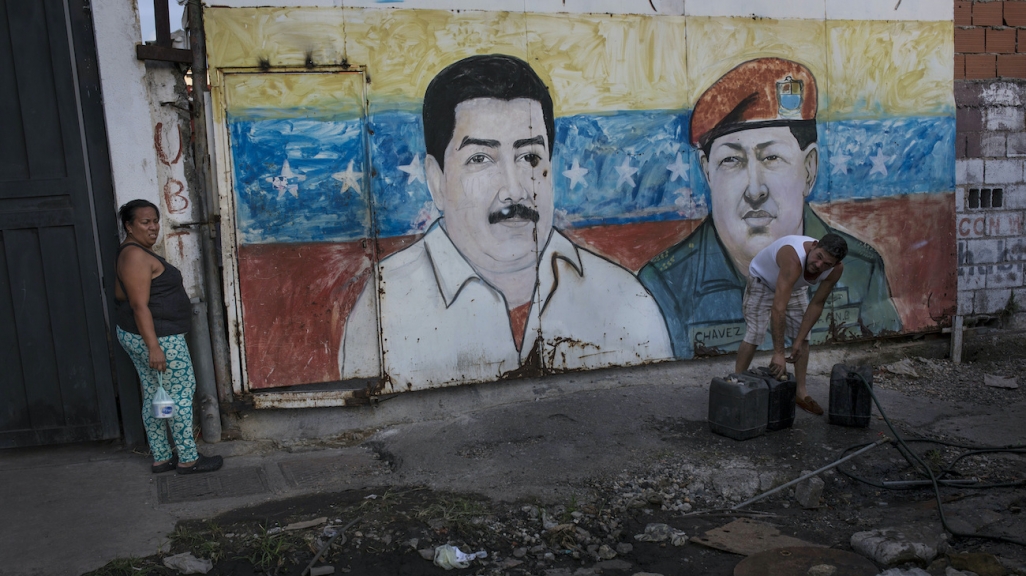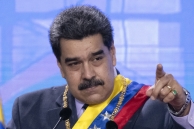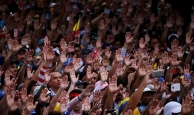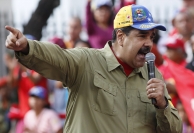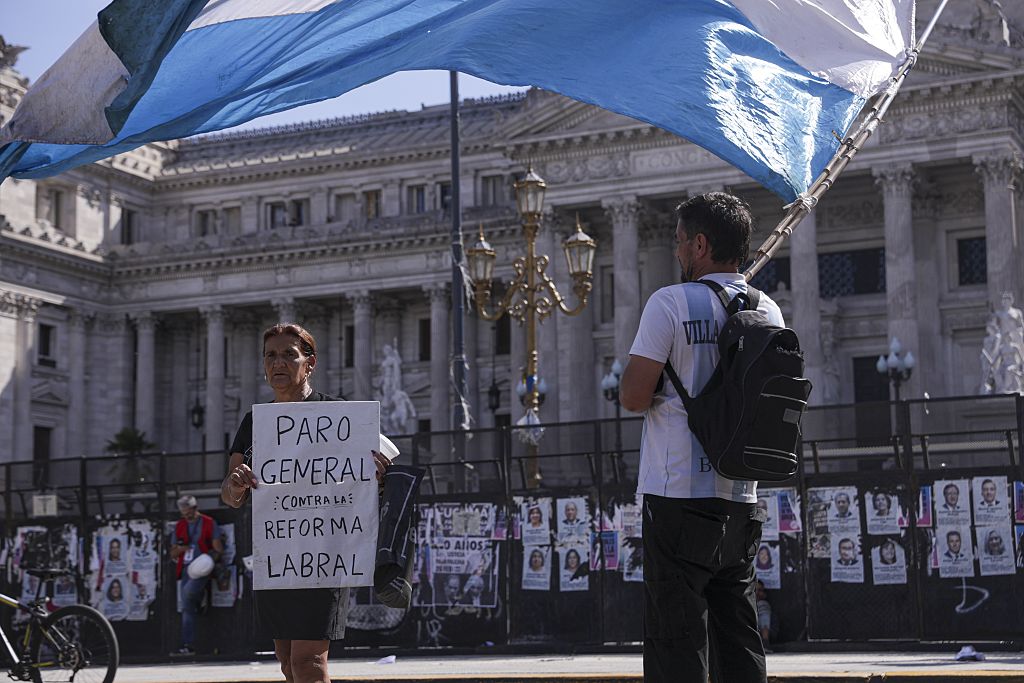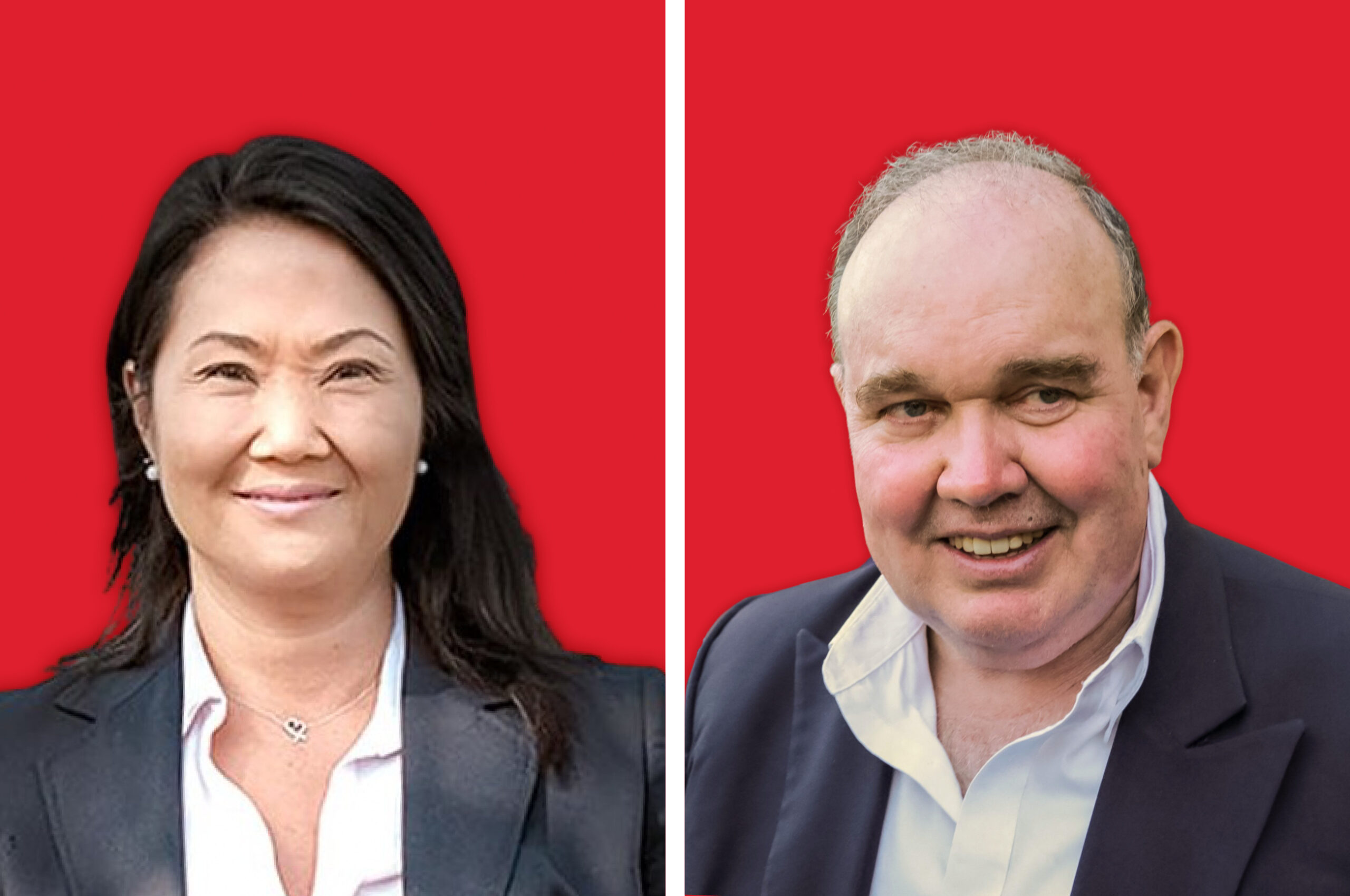Deconstructing Chavismo: The Myth and the Reality
Deconstructing Chavismo: The Myth and the Reality
After 20 years, Hugo Chávez and now Nicolás Maduro's project is exposed as less an ideology than a cold-blooded grab for lasting power and self-enrichment, writes AS/COA’s Eric Farnsworth.
Update: Negotiations are set to start on Friday, August 13, in Mexico between representatives of the de facto regime of Nicolás Maduro and the administration of Juan Guaidó. This is not the first time negotiations have been attempted, and expectations for meaningful democratic progress are modest. Below, AS/COA Vice President Eric Farnsworth discusses why the history of dialogue with chavistas is so fraught.
On February 23, 2019, the world watched horrified as acrid smoke billowed from trailers attempting to bring medical and food aid across the Colombian border into Venezuela. The life-giving cargo was torched and left stranded by the Nicolás Maduro regime, which barricaded the bridges leading to Venezuela while daring anyone to breach them. Similar scenes played out on the Brazilian border. Rather than welcoming international aid, Maduro’s forces destroyed it. Fourteen people were reported killed and almost 300 wounded in an effort by Maduro to prevent his own countrymen from receiving desperately needed supplies to address a humanitarian crisis he himself created.
It would be difficult to find a more perfect snapshot of the true nature of the de facto regime in Venezuela. But understanding and acknowledging the abject moral poverty of chavismo and the regime that claims its mantle is essential for anyone seeking Venezuela’s return to the democratic path.
- Learn about the AS/COA Venezuela Working Group.
“People asked, if the nation was so rich, why were they and their families so poor?”
“Washington was more concerned with unfettered access to Venezuelan crude than fettering crude Venezuelan antics.”
The Biden administration must refine Washington’s strategy toward the 20-year-old dictatorship.
“Chávez took Venezuela from a vibrant if imperfect democratic ally of the West to a reliable friend of authoritarians seeking to undermine global democratic governance.”
“It will be the Venezuelan people who continue to suffer and die needlessly for the arrogance, inhumanity, and boundless greed of the Maduro regime.”
Transparency and rule of law will be key to Venezuela's reconstruction, says AS/COA's Eric Farnsworth in U.S. Senate testimony.
“What Maduro lacked was the flexibility to moderate or shift the approach he was bequeathed.”
"We are now dealing with a consolidated dictatorship," said the AS/COA vice president.
“Maduro’s rule is no departure from chavismo—it is the logical result of the full manifestation of the chavista vision.”
"It's time to update the U.S. foreign policy toolkit for the social media age," writes AS/COA's Eric Farnsworth for The National Interest.







